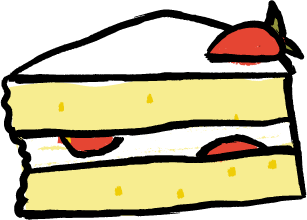

Pick the best bottles for your big day.
A brief guide to choosing wines for your wedding--red
Weddings are a big deal. In fact, for many men and women around the world, they’re the biggest deal there is - hundreds of stress-filled, anxious and excited hours go into planning them, and the closer they get, the more there seems to be to think about and meticulously arrange.

Clothes, venues, rings, guests, food… the list stretches on and on, and everybody wants to get the perfect balance between making the day a special one for the couple, while displaying an exquisite sense of taste to the gathered family and friends who attend.
After all, weddings are supposed to be memorable, and are supposed to be a happy occasion full of extravagance and style.
One of the things which often gets overlooked, however, is the wine list. I’m sure we’ve all attended weddings where the wine on offer seems to be something of an afterthought, bought in bulk and with little or no attention paid to the impact the drink can have on the day as a whole. For some people, this might be fine - not everyone is quite as fanatical about their wines as we are.
However, it's safe to say that nobody enjoys bad wine, and everybody appreciates that little extra effort - whether it’s a good, sensible pairing with the food, or a touch of elegance or oenological exoticism which can go a long way, and which adds an extra layer of sophistication to the day.
With this in mind, here are a few foolproof tips for selecting wines for weddings, be they big, flamboyant affairs or small intimate ones, traditional or alternative.
Raising a glass to the happy couple--aromatic
The first drink of the day is likely to be some kind of toast, or welcoming drink. Classically, we’re expected to provide Champagne for this part of the wedding celebrations, but more and more, people are looking to alternatives which deviate from the norm. It has often been said that the big Champagne producers of France have too much of a monopoly on the sparkling wine market (and have been accused of resting on their laurels somewhat, and allowing standards to slip in recent years…) and there are a whole host of alternatives to try at a fraction of the cost, and which can add a bit of alternative sophistication to your day.
If you're going for Champagne, why not try something like a blanc des noirs - a deeper, more sultry blended Champagne made from only the black grapes in the classic blend.
Prosecco is the big hit of the past couple of years; more fun, fruitier and livelier than the French sparklers, and a great way to kick off proceedings. The cheapest of the bunch is usually something like a Spanish Cava, a wine style which is finding its feet again in the 21st century after decades of somewhat uncalled-for sneering in the past, and most New World countries have decent sparklers you can consider.
Cometh the moment, cometh the wine--racy
One of the key factors to consider for the main section of the reception is the appropriateness of your wine list. You want your wedding party to run smoothly, with everything seeming to appear thematic and with the flow of the event.
As such, think about the time of year and probable climatic conditions your wedding will take place in; during sunny, summery months, it’s likely crisp, refreshing white wines are going to considerably more popular than full bodied reds. For autumnal and wintery weddings, you’ll want something darker, more mysterious and complex.
The same principle applies to the venue: is it an outdoor wedding, or an indoor one? Also, give some thought to whether you’re choosing a wine to suit a theme, or if you’re more focused on making a strong pairing with the food being served - are you going for big, crowd-pleasing numbers, or something a little more exclusive and challenging for your guests?
You’re also going to have to consider quantities. Running out of wine is definitely going to dampen any event, so make sure you’ve got enough. Most wedding planners will recommend half a bottle for each guest, so do your sums and figure out the minimum you’ll need.
Safe options for dinner--aromatic
When it comes to matching food with wines at weddings, this can be a little tricky, especially as you’ll most likely be serving more than just one dish.
In this case, you’ll want a good, rounded set of white and red wines, which are sure to fit with a wide range of different dishes, and which can hold their own through a starter and a main course, without overpowering any components.
Probably the two ‘safest’ grape varietals would be a Sauvignon Blanc- crisp and fruity, with a decent acidity a mellow orchard flavours, and a red Grenache or Shiraz, spicy and savoury, without being too heavy on the palate.
If you want more of a range of wines to be available to your guests, we would suggest you cover all your fussy guests bases by choosing a four wine combination of light and heavy whites and reds. A safe example is Pinot Gris and Pinot Noir and Chardonnay and Shiraz for your heavy reds. This is going to keep both your grandmother and your bestie happy.
Safe options for dinner
Now for the best part... The cake--cellar
Dessert wines always seem to something of a little luxury, and I’d absolutely recommend seeking out a good one to go with cake or whatever sweet treats you’re serving. One of the great things about dessert wines at weddings is that people generally won’t drink more than one glass - they tend to be very rich - and so you can afford to splash out a little on smaller quantities for your guests.

When it comes to cake pairing, especially cakes with marzipan and candied fruits, the undisputed kings of the dessert wine world are the beautiful Sauternes of France and Hungarian Tokaji wines. Amber in colour, with flavours of dried apricots, honey and almonds, they’ll close your wedding meal with a real flash of old world sophistication.
If you can’t get hold of such treasures, any dessert wines will do (these are the wines made from withered grapes) - your guests won’t forget them in a hurry.
About the Author
Banjo Harris Plane is the three-time winner Sommelier of the Year Australia and a certified advanced Sommelier through the Court of Master Sommeliers. He first cut his teeth in the wine industry working as a sommelier in Australia's best restaurants, before starting multiple businesses in the space of a few years... these included two restaurants, a wine import business and co-founding Good Pair Days!
Do you know your wine personality? If your answer is no, take our quiz to find out which wines to pick up next and build your box!
Build my box





